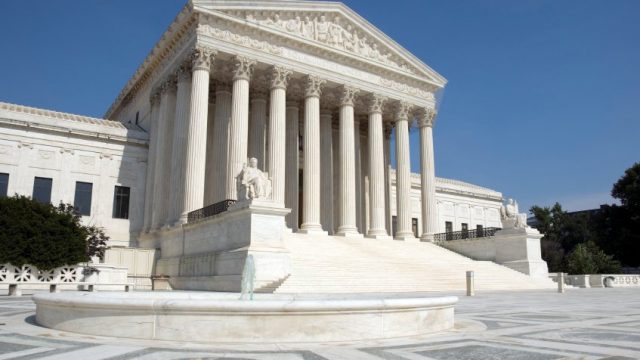Unions Looking To Profit By Taking From The Disabled

The Supreme Court is hearing oral arguments in a case where the mother of a disabled child, one Pamela Harris, is forced to share the Medicaid dollars she receives to care for her son with a public worker union. Because, under Illinois state law, accepting government money classifies her as a public worker who must pay dues to the union.
This despite the fact people like Harris receive no benefits from the union. They don’t get pensions or health benefits, and the union can’t negotiate for higher Medicaid payments since those are capped by law.
Her son Josh, 25, has a rare muscular genetic disease called Rubinstein-Taybi Syndrome that has left him intellectually disabled, non-communicative, and unable to control his body. She bathes him, brushes his teeth, pops his dislocated limbs back into place, and takes him to meetings with doctors, specialists, and therapists.
He communicates to Mrs. Harris, his full-time caregiver, through an iPad app, but the majority of the work is done by a mother’s intuition.
“The state faces scant availability of personal care workers, especially those willing to work with Josh,” Harris said. “It yields better outcomes of care for the individuals when cared for with people they trust—it takes years of observation and honestly someone who loves to give Josh the care he needs.”
Josh receives $715 each month from Medicaid to cover the costs of the constant supervision he requires, a far cheaper alternative to institutionalization. The money is divided between Mrs. Harris, the occupational therapist who massages his limbs to prevent dislocations, the speech therapist who teaches him how to chew and swallow, and the physical therapist who keeps him ambulatory, as well as medical professionals that help keep Josh healthy.
Under the agreement reached by Governors Blagojevich and Quinn, the Harris family would have to funnel a portion of that money to public sector unions, including Democratic allies such as the Service Employees International Union (SEIU) and the American Federation of State, County, and Municipal Employees (AFSCME).
The government is arguing that because people like Harris receive taxpayer money, they are state employees subject to union dues, though not the pensions and liability coverage that their fellow public sector workers receive. Harris was puzzled by the classification, considering that unions cannot negotiate other benefits for her family because the Medicaid program is capped.
“One penny, one dollar taken out of [the monthly stipend] is taken out of support or services for Josh,” Harris told the Washington Free Beacon. “Being in a union is incompatible, intrusive, and going to interfere with the care I provide. The union is there to protect the union worker, so I don’t see how Josh benefits.”
This is unconscionable, but also an illustration of just how desperate unions are to shore up membership. Per the latest BLS report, union membership is at its lowest point since 1916, making up just 11.2% of the workforce. Public worker unions are the last bastion for organized labor, and it’s clear that Big Labor has few scruples in fortifying that toehold in the American labor force.
But hopefully the Supreme Court will strike down this forced unionization law. It’s one thing for workers to choose to organize – that’s a protected constitutional right – but it’s quite another to force people who want no part of a union to pay dues anyway.




